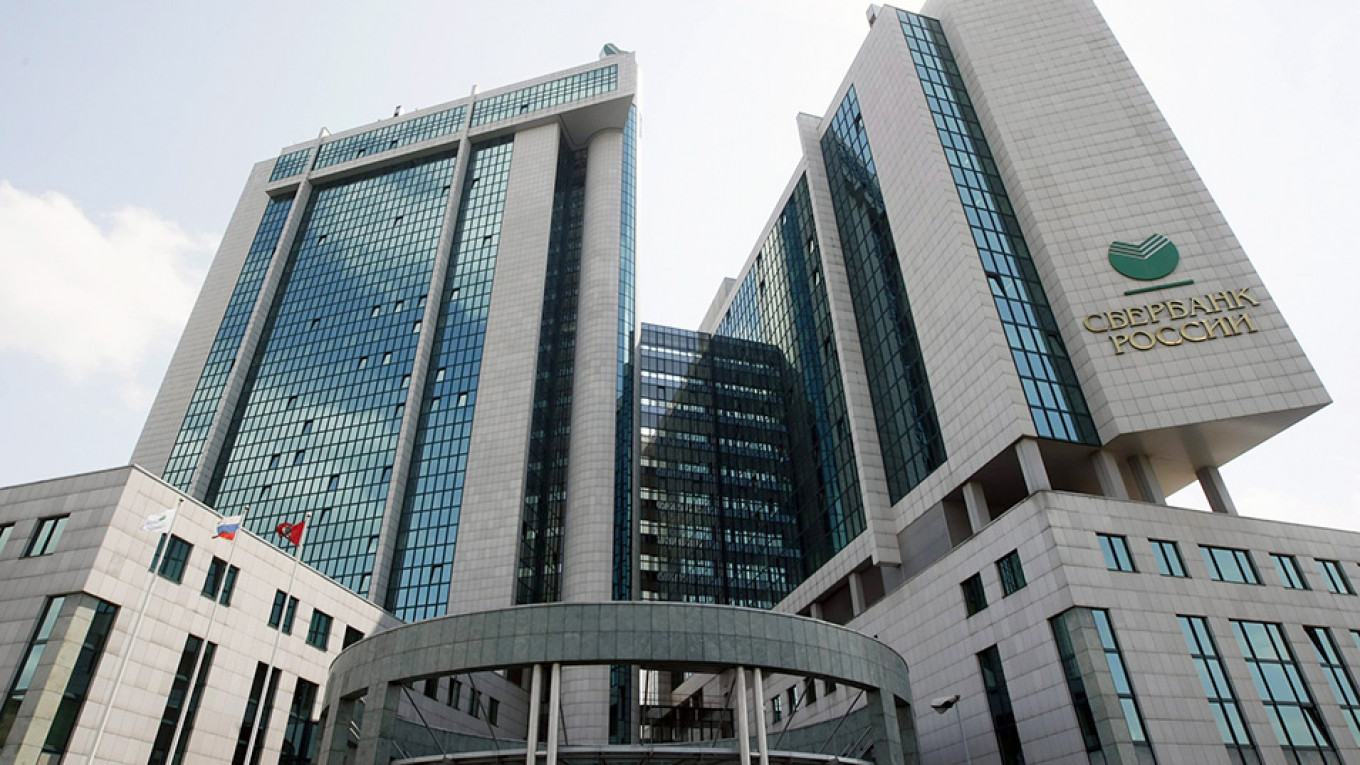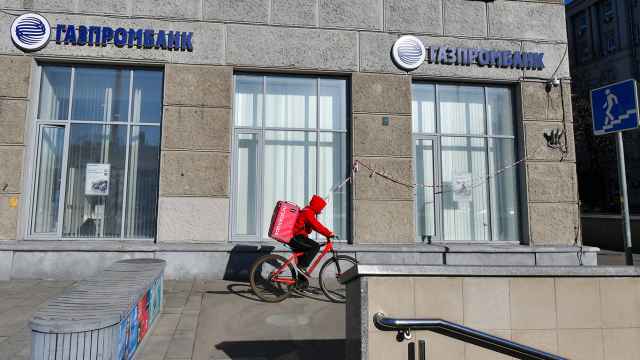Leading Russian banks are working on plans to help each other retain at least short-term access to the global financial system in the event that they are hit by fresh U.S. sanctions, sources familiar with the matter told Reuters.
Sberbank, VTB, Gazprombank and others are examining how they can provide each other with access to U.S. dollars or other major foreign currencies by using so-called correspondent accounts, the sources said.
Banks access financial services in different jurisdictions and provide cross-border payment services to customers in various currencies through correspondent banking relationships.
The new scheme, which banks started to draft with Russia's finance ministry and the Central Bank last year, would be unlikely to work indefinitely but could help avoid a panic if one or several big banks are cut off from dollar transactions.
U.S. lawmakers last year drafted a sanctions bill which proposed cutting off some of Russia's top banks from the U.S. dollar system, mentioning Sberbank, VTB, Gazprombank, Russian Agriculture Bank, Promsvyazbank, VEB and Bank of Moscow.
This did not come into force and recently another was proposed, without mentioning any specific banks.
But Russian banks still fear they could come under sanctions and so have begun to draft a contingency plan.
"Each important bank has a step-by-step plan on what should be done in a given situation. The first month is set out day by day, if not hour by hour," a senior financial official said.
The Central Bank and Gazprombank declined to comment. The finance ministry, Sberbank, VTB, Promsvyazbank, VEB and Russian Agriculture Bank did not reply to requests for comment.
The two biggest threats to the banking sector in Russia are being cut off from the SWIFT banking messaging system and losing access to foreign currency, which they usually get from U.S. banks via correspondent accounts.
In the event of being shut out of SWIFT, Russia already has its own system, which it is upgrading.
And for foreign currencies there are a number of options, said the sources, who include a high-ranking state banker, a well-placed industry official, an executive with a large bank and an individual in a foreign bank.
Temporary Fix
The main option relies on at least one major Russian bank avoiding sanctions and being able to retain access to foreign currencies via correspondent accounts with major overseas banks.
Other Russian banks would then set up or upgrade existing correspondent accounts with that bank to shift currency around.
Publicly available documents show VTB has correspondent accounts with Sberbank and VEB, while Russian Agriculture Bank has accounts with VEB, VTB, Gazprombank, Sberbank and a number of other Russian banks.
VEB has such accounts with Sberbank and Gazprombank.
Sberbank, VTB, VEB, Gazprombank and Russian Agriculture Bank have correspondent accounts with the central bank as well.
However the bulk of these accounts are denominated in rubles, with only a handful in U.S. dollars and euros.
"This would (them) allow to move the dollars between themselves bypassing a correspondent account," the source at a foreign bank said, adding that in order for the back-up to work one bank in the chain would need to have a U.S. dollar correspondent account with a U.S. bank as there would still be a need to make external settlements, necessitating a bridge.
Correspondent accounts would complicate tracking currency transfers between the banks, making them harder for overseas authorities to spot, a former central bank official said.
Such an arrangement would represent a "temporary solution" which might last for three or four months and buy the banks time to find an alternative, while also reassuring customers.
And a spike in currency transactions by the banks which had not been sanctioned and were dealing with the foreign correspondent bank would likely arouse suspicions.
Other options include the Central Bank providing forex currency to a 'clean bank' which in turn would then distribute it to peers via correspondent accounts, sources said.
Alternatively a sanctioned bank could use correspondent accounts directly with the central bank although that would raise the risk of the central bank itself being hit with sanctions and therefore, is unlikely, the sources said.
A Message from The Moscow Times:
Dear readers,
We are facing unprecedented challenges. Russia's Prosecutor General's Office has designated The Moscow Times as an "undesirable" organization, criminalizing our work and putting our staff at risk of prosecution. This follows our earlier unjust labeling as a "foreign agent."
These actions are direct attempts to silence independent journalism in Russia. The authorities claim our work "discredits the decisions of the Russian leadership." We see things differently: we strive to provide accurate, unbiased reporting on Russia.
We, the journalists of The Moscow Times, refuse to be silenced. But to continue our work, we need your help.
Your support, no matter how small, makes a world of difference. If you can, please support us monthly starting from just $2. It's quick to set up, and every contribution makes a significant impact.
By supporting The Moscow Times, you're defending open, independent journalism in the face of repression. Thank you for standing with us.
Remind me later.







